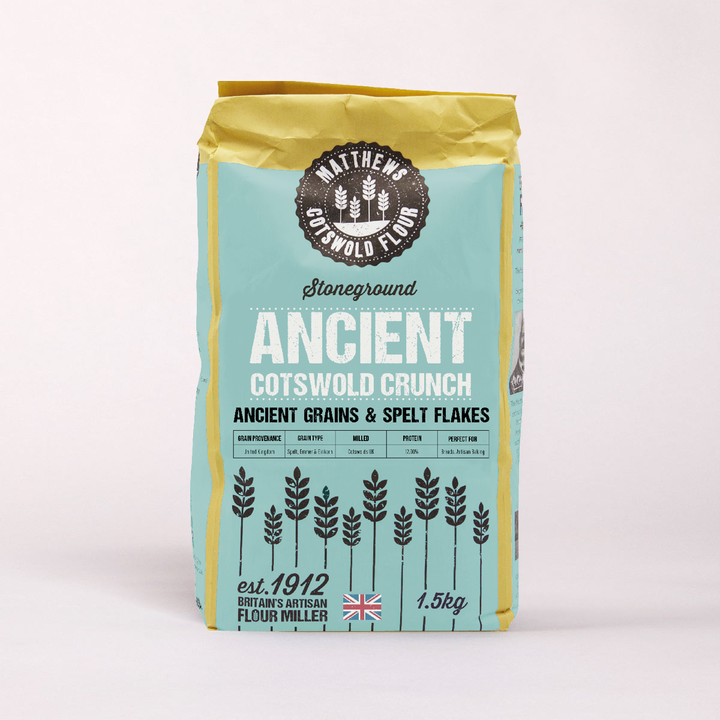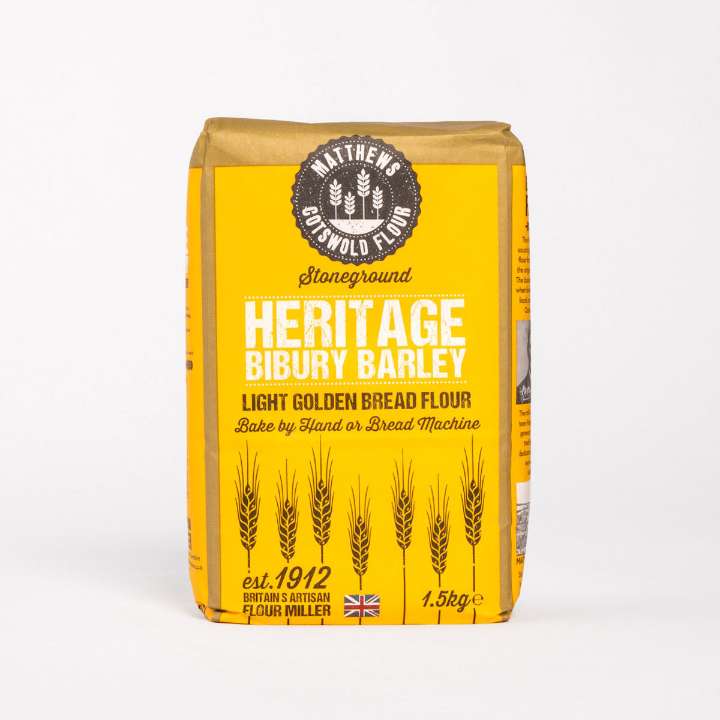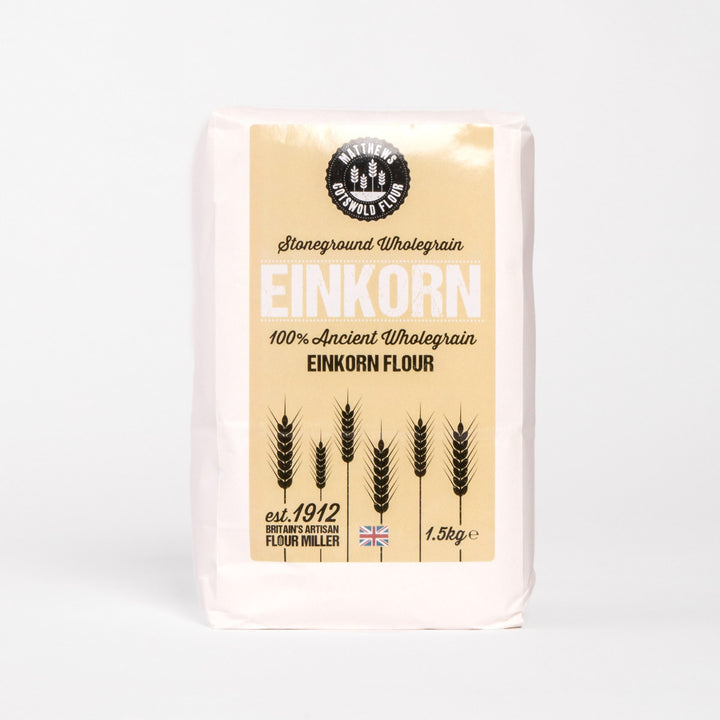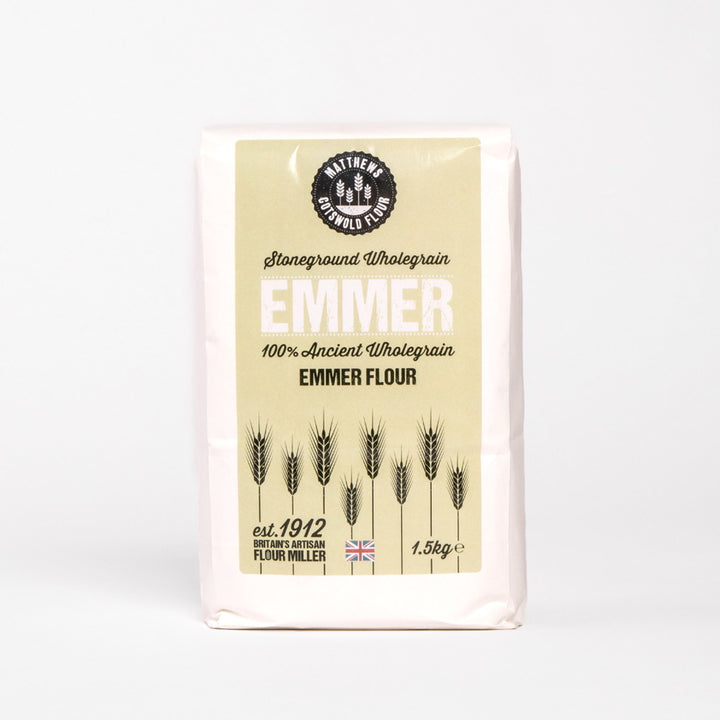What is the best flour for making pizza dough?
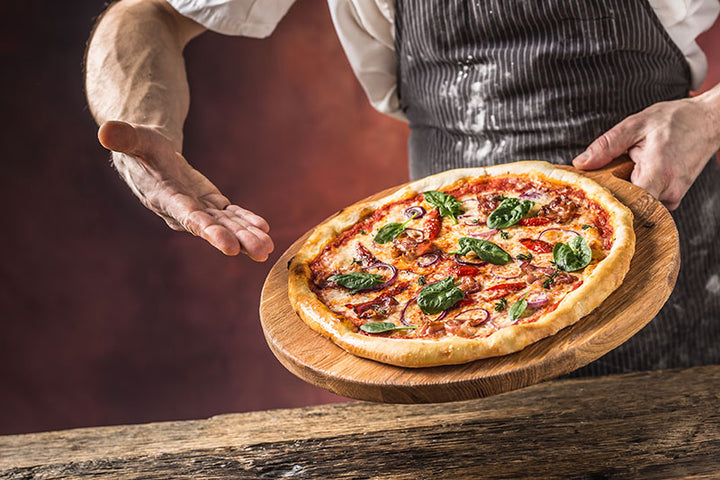
Every baker knows that bread flour can be used to make great pizza dough. When making pizza dough, you need a very specific type of flour. Flours with high gluten content are necessary to hold the dough together while cooking. However, they can prevent the bread from rising and working properly. To ensure you get your favourite crust without sacrificing quality, find out which flour makes the best pizza dough in this article!
What is the best flour for making pizza dough?
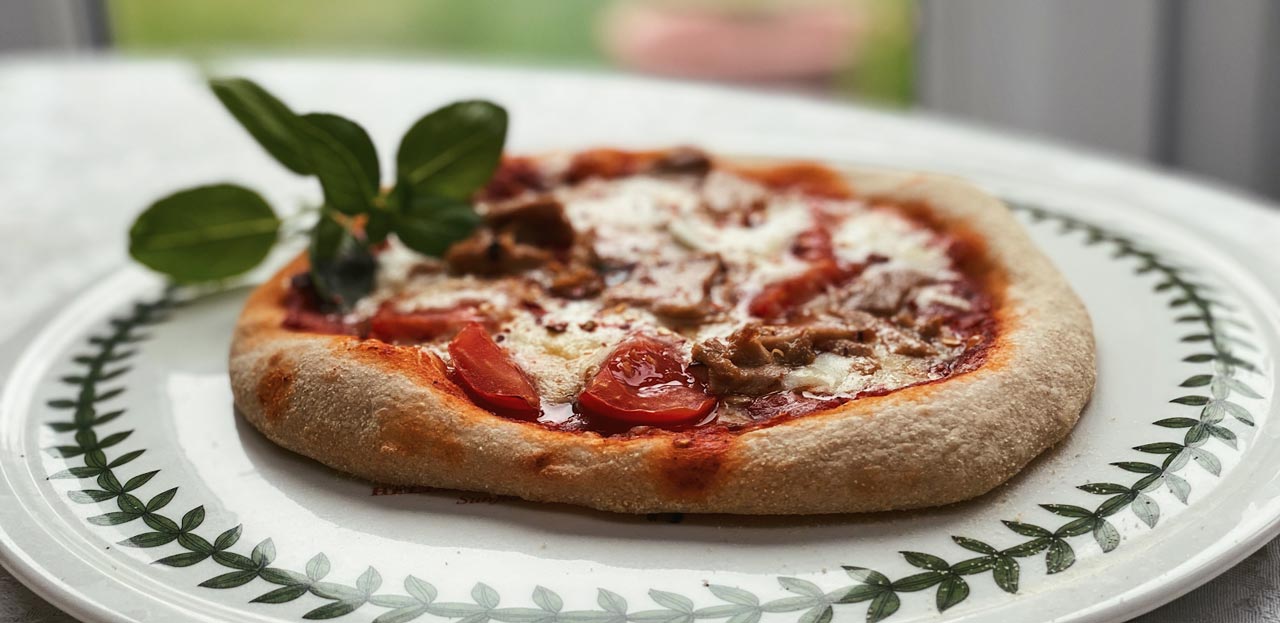
Pizza dough is a staple in any pizza kitchen, and getting the right texture and flavour can be tricky. This article will give you four recipes for making pizza dough, each with its unique ingredients and flavours. So whether you're looking for a classic bread-and-butter crust or something a little more adventurous, we've got you covered!
What is the best flour for making pizza dough?
There are many types of flour available on the market, and each has its own unique properties that can affect the outcome of pizza dough. Some popular flours used in pizza dough include all-purpose flour, bread flour, and pastry flour. Each has its own unique flavour and texture that can be used to create different types of pizzas. It is important to choose the right flour for making pizza dough so that the end product is consistent and delicious.
The best flour for pizza
Different types of flour are used in making pizza. However, there are two most commonly used:
- Italian Tipo 00- flour
- Bread flour
- All-purpose flour
- Gluten-free flour
Some people prefer Italian Tipo 00 Flour for making pizza dough, while others prefer bread flour. Both flours have pros and cons, so it's worth trying a few different types to find the perfect one for your recipe.
Check our Matthews Cotswold Pizza Flour range ->
What is 00 flour
The Italian Tipo 00 Flour is a finely ground Italian flour commonly used to make pasta and pizza dough. This is likely the secret ingredient in your favourite pizzeria's delicate yet supple pizza crust.
When it comes to producing pasta and pizza crusts, nothing beats the quality of Italian 00 wheat, often known as doppio zero ('double zero'). The flour is popular in Italy and other European nations and is rated from 00 (the finest) to 0 (the next finest) to 1 (the next coarsest) to 2 (the roughest).
The Tipo-00 is the Only grain refined to eliminate the bran and germ. It is milled into 00 flour, allowing for the finest possible quality, which is both nutritious and harsh in texture. The powder is then run through the mill many times to make it as fine as baby powder.
Whether you're preparing pasta or pizza, you'll need a different kind of 00 flour. There are a few categories of 00 flour, depending on the recipe. To make pasta, you'll need flour with a lower gluten concentration than what's used to make pizza. Pasta flour and pizza flour each have their own distinct labels that say "00."
Uses for 00 flour
- 00 flour is a type of flour made from ground-up vacuum-sealed grains. It is a fine, soft flour for baking and other food preparations. Tipo 00 flour is an alternative to all-purpose flour in some baking recipes.
- 00 flour is perfect for making bread, cakes, biscuits, pies, cookies, and other pastries. It is also often used in gluten-free baking recipes because it contains low gluten content.
- 00 flour is also used in vegan baking recipes to replace regular flour. 00 flour is high in fibre and low in sugar, which makes it a healthier option than many other types of flour.
- 00 flour can also be used in smoothies and other health-related drinks. It is a good source of protein and fibre, which can help to improve digestion.
- 00 flour is often used as a replacement for all-purpose flour in recipes. It has a very low carbohydrate content, making it a great option for people on keto or paleo diets.
Difference between 00 flour and bread flour
Many believe 00 flour is the best flour for making pizza dough. This flour is perfect for baking and pizza because it has various uses. 00 flour texture makes it a good flour category for making bread, pancakes, waffles, cookies, and even pasta.
However, some believe that bread flour is better than 00-flour for making pizza dough. Bread flour is made from whole wheat flour, which gives it a more distinctive flavour and texture. It also has more gluten than all-purpose flour, which makes it tougher and more elastic.
Ultimately, it depends on what you are looking for in flour. 00-flour will work well for most purposes, but bread flour may give you a better result if you try to make pizza dough.
Why is 00 flour better for pizza?
Because of the fineness of the grains, 00 flour is the ideal flour for pizza. 00 flour is a finely ground Italian milled flour ideal for pizza due to its delicate and fluffy crust. 00 flour comes in various protein and gluten varieties, making it simple to pick the correct type of 00 flour for your favourite pizza flavour. In addition, 00 flour has 12% gluten, which is great for a chewy crust, unlike bread flour.
What is the difference between bread dough and pizza dough recipes using bread flour?
If you want to know how to manage bread dough and pizza dough, as well as when one might be substituted for the other, you should study the distinctions between the two.
Flour, water, salt, oil, and a leavening agent are the only differences between basic bread dough and pizza dough. The key difference between pizza dough and bread dough is in the formula or proportions of these ingredients. To a greater extent than with pizza dough, the water-to-flour ratio in bread dough is higher.
In essence, pizza dough and bread dough differ in the following ways:
- Ingredients
- Moisture Levels
- Gluten
- Kneading method
- Fermentation
- Method of Cooking
Pizza Crust vs Bread Crust Recipe
Ingredients
It is possible to make pizza using nothing but bread flour, water, salt, oil, and leavening, the same ingredients used in making bread dough. Bread may be made using the same stuff.
Bread dough often has more components than pizza dough, though. Besides flour, yeast, salt, and water, bread can have eggs, butter, cream, milk, a sprinkling of sugar, and a whole lot more.
Instead of baking it into the dough, pizza toppings showcase the pizza's savoury crust. Pizza crust generally has less fat than the toppings, but this isn't the whole picture.
Water quantity
A larger proportion of water is used in making bread dough than pizza dough. Specifically, the higher water-to-flour ratio required for bread dough. The oil used in pizza dough is excluded when determining the amount of water needed. The typical moisture level for pizza dough is around 70%, but bread doughs may often reach up to 90%. Accordingly, pizza dough recipes often demand less water than bread dough recipes.
Gluten
When comparing pizza dough to bread dough, one of the most notable distinctions is the amount of vital gluten. Pizza dough needs to be extremely stretchy; hence a greater gluten content is required. While a highly developed gluten structure is essential for bread dough, the dough's final product doesn't necessitate the same degree of stretchiness or extensibility.
On the other hand, pizza dough often uses flour with a greater protein content (bread flour is perfect). While bread flour can be used to make bread dough, some varieties of bread dough fare better when produced with lower protein flour, such as all-purpose flour. For more tender dinner rolls, you may use flour with reduced protein content rather than making pizza dough.
Kneading method
Depending on your preferences, kneading bread can take on several different forms. Both bread and pizza dough require vigorous kneading to get the finest gluten structure. While a robust gluten network is necessary for both bread and pizza, the latter is sometimes advertised as having more gluten than the former since it is kneaded more forcefully and needs greater flexibility. The crust should be somewhat chewier than a soft sandwich roll to make a truly excellent pizza. Chewy crusts are preferred on sourdough and artisan bread.
Overall, bread dough recipes use a different method of kneading than pizza dough recipes. Bread dough is usually kneaded in a bowl with a wooden spoon, whereas pizza dough is often rolled out on a floured surface and then transferred to a baking sheet.
Fermentation
Fermentation is another difference between bread dough and pizza dough recipes when using bread flour because bread dough is fermented with a yeast starter, while pizza dough is not. Bread flour is higher in gluten than pizza dough flour, so that the fermentation will be more vigorous with bread dough. Yeast will also work more effectively with high-gluten flours to produce a stronger flavour and a softer texture. Fermentation
To rise, bread and pizza dough need to rest and ferment at room temperature. The yeast you use might significantly impact what you call this dough rise. In the case of sourdough, the rising period is known as fermentation.
Unless you're following a pizza recipe, which calls for a longer fermentation time to allow the wild yeast to raise your dough, pizza dough typically only needs a shorter rise or fermentation period than bread dough.
Method of Cooking
Depending on the style of pizza or bread you're baking, the cooking processes for the dough will vary significantly.
Pizza is typically cooked in a hot oven on a special stone. In other words, no tin or pan is needed (however, you can use one if you want to).
Bread flour is also more absorbent than pizza flour, which can result in a dough that is denser and harder to work with. For this reason, bread dough recipes often call for more kneading time than pizza dough recipes.
Finally, bread flour is usually mixed with more water than pizza flour, making the dough wet and sticky. This moisture helps to create a soft, pillow-like texture in the finished dough.
Pizza dough with all-purpose flour
In addition to its general applicability, all-purpose flour works particularly well when you want to make a thin pizza crust. Due to its lower gluten content, all-purpose flour can't be used to make bread and other similar products. Its reduced gluten level means that when combined with other pizza dough components, the resulting dough won't rise as much as it would if more gluten had been used. Remember that all-purpose flour can break faster than other flours, making it more difficult to spread out when used in pizza dough.
Can I use plain flour for pizza dough?
Yes, someone can use plain flour for pizza dough, but they might not get the same results as if they used a specific type of flour designed for making pizza dough. Due to the lower protein content of plain flour, the texture of the pizza dough will be slightly different.
Pizza dough types
Pizza dough is one of those things that can be a bit of a mystery to the home cook. There are so many different types and flavours of pizza dough, and it can be hard to know which flour to use for which type.
Chewy pizza dough
The best flour for making chewy pizza dough is high-gluten flour. This pizza dough is made with high gluten, a protein-rich flour often milled from hard wheat varieties like red winter and red spring. You may also prepare it by adding essential gluten wheat to all-purpose flour. It's the key ingredient that gives pizza crusts their distinctive shape and keeps them wet. It is very stretchy and chewy, making it perfect for filling pizzas.
New York-style pizza
The best flour for making New York Style Pizza Dough is all-purpose flour. This type of pizza dough is thin, crispy, and chewy. All-purpose flour is a blend of hard and soft wheat flour. It has a medium protein content, which makes it perfect for New York Style Pizza Dough.
Neapolitan pizza
The best flour for making Neapolitan Pizza Dough is 00 Pizza Flour. This type of pizza dough is thin and crispy with a slightly chewy texture. 00 Pizza Flour is an Italian-milled, finely ground wheat flour. It is perfect for Neapolitan Pizza Dough because it produces a light and airy crust with a slightly chewy centre.
Focaccia Pizza Dough
Focaccia Pizza Dough is a type of Pizza dough made with olive oil and sometimes topped with herbs. The best flour for making Focaccia Pizza Dough is all-purpose flour. The flour is ideal because it creates a light and airy dough.
Sicilian Pizza Dough
The best flour for making Sicilian Pizza Dough is semolina flour. This is because semolina flour is a type of wheat flour that is milled from durum wheat. Durum wheat is a hard wheat that has a high protein content, making it perfect for Sicilian Pizza Dough.
Gluten-free Pizza
The gluten-free Pizza Dough is made with gluten-free flour. This type of Pizza dough is perfect for people who are celiac or have a gluten intolerance. In addition, this Pizza dough is also vegan.
Sourdough Pizza Dough
The best flour for making Sourdough Pizza Dough is bread flour. This type of pizza dough is chewy with a slightly sour taste. Bread flour is made from high-protein wheat flour. The higher protein content gives Sourdough Pizza Dough it's chewy texture.
Gluten-Free Pizza Dough
The best flour for making Gluten-Free Pizza Dough is gluten-free all-purpose flour. This pizza dough is made with gluten-free all-purpose flour, a blend of rice flour, tapioca flour, and potato starch. It is perfect for those who are gluten-sensitive or celiac.
Detroit Style Pizza Dough
This type of pizza dough is thick, fluffy, and crispy. The best flour for making Detroit Style Pizza Dough is Pizza Flour. Pizza Flour is a high-protein flour that is perfect for Detroit Style Pizza Dough because it produces a light and airy crust.
Cotto Pizza Dough
The best flour for making Canotto Pizza Dough is bread flour. This type of pizza dough is made with a poolish, which is a pre-fermented dough. Bread flour is perfect for Canotto Pizza Dough because it gives the pizza a chewy texture.
Sicilian-Inspired Pizza Dough
You will find that the best flour for making Sicilian-Inspired Pizza Dough is semolina flour. This type of pizza dough is thick and chewy. Semolina flour is made from durum wheat, a hard wheat variety. It is perfect for Sicilian-Inspired Pizza Dough because it produces a light and airy crust with a slightly chewy taste.
Focaccia/Flatbread Pizza Dough
The Focaccia pizza dough is popular in Italy and is also known as Pizza al Taglio. The best flour for making Focaccia Pizza Dough is all-purpose or semolina flour.
Deep-Dish Pizza Dough
The best flour for making Deep-Dish Pizza Dough is all-purpose flour. In bakeries and pizzerias, Pizza Flour is often used because it is a high-protein flour that produces a light and airy crust. However, all-purpose flour will also work well for Deep-Dish Pizza Dough.
Types of pizza crust
The pizza crust is a raised, doughy bread that forms the base of the pizza. It is usually round and flat and typically 10-12 inches in diameter. The thickness of the crust varies, depending on the style of pizza.
There are several different types of pizza crust, including:
Whole Grain pizza flour
This pizza crust is made with whole wheat flour, giving it a nutty flavour and slightly chewy texture. The whole wheat flour pizza crust is also high in fibre and nutrients. You can make a whole grain pizza flour crispy crust.
How to make Whole Grain pizza flour crispy crust
You can make a whole grain pizza flour crispy crust by adding semolina flour to the dough. Semolina flour is a coarsely ground wheat flour that helps to create a crisp crust.
You can also brush the pizza dough with olive oil before baking it, which will help create a crispy crust.
Quick pizza dough
This type of pizza crust is made with all-purpose flour and doesn't require any rising time. Quick pizza dough is easy to make and is ideal for busy weeknights.
Sourdough pizza
The pizza crust is made with a sourdough starter, which gives it a slightly tangy flavour. The sourdough pizza crust is also chewier and has a more complex flavour than other types of pizza crust.
Gluten-free pizza
This type of pizza crust is made with gluten-free flour, which is ideal for people who are gluten intolerant or have celiac disease. Alternatively, the Almond flour can act as a keto-friendly pizza crust.
Vegan pizza
This type of pizza is made with vegan cheese and plant-based toppings. It is dairy-free and ideal for people who are lactose intolerant or have a vegan lifestyle.
No matter what pizza crust you choose, it's important to bake the pizza dough until it's golden brown and crispy. This will ensure that you have a delicious pizza that everyone will enjoy!
FAQ about Flour
What makes pizza dough chewy
Pizza dough is chewy because it has high moisture content and lots of gluten, which does not stretch. This helps the dough retain its shape during the rising process.
Is pastry flour and 00 flour the same?
They are not the same, but that doesn't mean you cannot use them interchangeably. They are very similar, with the only difference being that 00 flour does not contain vital wheat gluten, a protein for the dough to develop its elasticity when mixed.
What type of flour for crispy crust
The best flour for the crispy crust is usually a combination of all-purpose flour and bread flour. All-purpose flour will provide more flakiness, and bread flour will contribute more flavour with a minor decrease in flakiness.
What is the easiest pizza dough?
Everybody has an answer to this question because every baker has a different opinion. If you are in the market for a quick and easy dough that you can use with your favourite toppings, try the Quick and Easy Pizza Crust.
What is dough made of?
The dough is made of flour, salt, yeast and water. Sometimes, you can add eggs to help with a lighter, fluffy dough. The amount of water depends on the amount of flour in the recipe and how wet you like your dough to be.
Is pizza considered bread?
Bread is a food that has been prepared from the dough of flour, yeast, water and salt. In baking, it is usually leavened and cooked in an oven by heat. Pizza also can be considered as bread in which yeast is used to leaven and cook the dough without using any other type of leavened or sourdough starter.
How is Italian homemade pizza different?
Italian homemade pizza is made entirely differently. The dough is typically made with 00 flour. Italian flour also contains slightly less lactose, about 1.3%, compared to 5% for average British all-purpose flour.
Our Pizza Flour Range
Cotswold Pizza Flour
Matthews Cotswold Pizza Flour
Cotswold Pizza flour is an award-winning finely milled white pizza flour for pizza dough in 16kg sack.
Italian Tipo 00 Flour
Our Italian Tipo 00 flour is ideal for Italian style pizza bases. Finely milled white flour producing elastic dough with great hydration and lightness. Perfect for Pizza and Pasta baking.
Matthews Tipo 00 Pizza Flour, 16kg
← Older Post Newer Post →





